- myFICO® Forums
- FICO Scoring and Other Credit Topics
- Personal Finance
- Re: Payment Preferences: Autopay or Manual?
- Subscribe to RSS Feed
- Mark Topic as New
- Mark Topic as Read
- Float this Topic for Current User
- Bookmark
- Subscribe
- Mute
- Printer Friendly Page
Payment Preferences: Autopay or Manual?
Is your credit card giving you the perks you want?
Browse credit cards from a variety of issuers to see if there's a better card for you.
- Mark as New
- Bookmark
- Subscribe
- Mute
- Subscribe to RSS Feed
- Permalink
- Report Inappropriate Content
Re: Payment Preferences: Autopay or Manual?
@MakingProgress wrote:
@Anonymous wrote:Just general curiosity among what you feel, along with some reasoning (however basic/complex it may be) for your preferences on payment method?
Primarily referring to payments that are more-of-less fixed amounts, such as rent/mtg, utilities, loans, insurance, etc.
I currently prefer manual payments, as I am still somewhat wary about relying upon the system to automatically pull payments each and every month. As I have acquired more services, I've started debating autopay but haven't been able to fully convince myself to switch.
Mortgate = Autopay, we get I think a 1/4% reduction in APR.
Utilities = Autopay, they go onto cards where I get cash back
Insurance = Autopay, again on a card where I get cash back
Car loan = manual, no APR reduction and can't pay with a CC
Credit Cards = both, set up Autopay for minimum due just in case, make manual payment prior to statement cut for full balance so that card will report 0 or a small balance if I have outstanding authoriztions.
Edit: Acutally Electric bill is a manual pay because they want to charge me a fee GREATER than my cash back to use a CC.
Get a US Bank Cash+ Visa and select Utilities as your 5% category.
- Mark as New
- Bookmark
- Subscribe
- Mute
- Subscribe to RSS Feed
- Permalink
- Report Inappropriate Content
Re: Payment Preferences: Autopay or Manual?
@Anonymous wrote:
@MakingProgress wrote:
@Anonymous wrote:Just general curiosity among what you feel, along with some reasoning (however basic/complex it may be) for your preferences on payment method?
Primarily referring to payments that are more-of-less fixed amounts, such as rent/mtg, utilities, loans, insurance, etc.
I currently prefer manual payments, as I am still somewhat wary about relying upon the system to automatically pull payments each and every month. As I have acquired more services, I've started debating autopay but haven't been able to fully convince myself to switch.
Mortgate = Autopay, we get I think a 1/4% reduction in APR.
Utilities = Autopay, they go onto cards where I get cash back
Insurance = Autopay, again on a card where I get cash back
Car loan = manual, no APR reduction and can't pay with a CC
Credit Cards = both, set up Autopay for minimum due just in case, make manual payment prior to statement cut for full balance so that card will report 0 or a small balance if I have outstanding authoriztions.
Edit: Acutally Electric bill is a manual pay because they want to charge me a fee GREATER than my cash back to use a CC.
Get a US Bank Cash+ Visa and select Utilities as your 5% category.
I am currently in the garden until at least Feb, when I will have between 1 and 3 inq (1 EX 2 TU and 3 EQ, that will no longer be scorable, and my AoYA will cross 1 yr. Cash + is one I am looking at, but I am also looking at Chase Freedom for another catagory card. I won't be under 5/24 until July, if I get a card or 2 in Feb then I won't be under 5/24 until Feb 2020. Decisions Decisons.



Current Scores







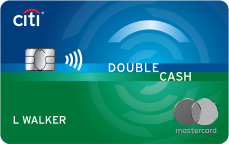

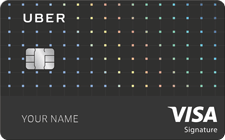
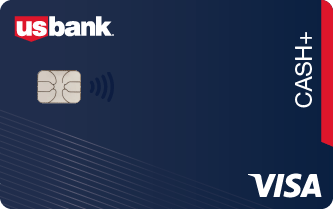

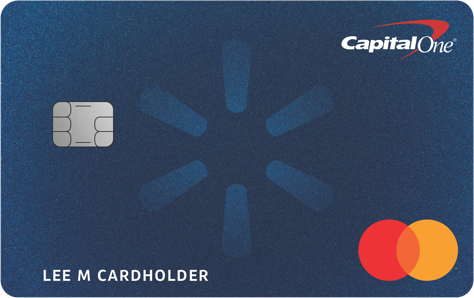
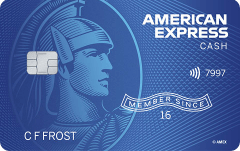
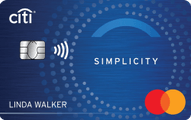


Garden Goal is All Reports Clean – Achieved 11/26/20

- Mark as New
- Bookmark
- Subscribe
- Mute
- Subscribe to RSS Feed
- Permalink
- Report Inappropriate Content
Re: Payment Preferences: Autopay or Manual?
@Anonymous wrote:Just general curiosity among what you feel, along with some reasoning (however basic/complex it may be) for your preferences on payment method?
Primarily referring to payments that are more-of-less fixed amounts, such as rent/mtg, utilities, loans, insurance, etc.
I currently prefer manual payments, as I am still somewhat wary about relying upon the system to automatically pull payments each and every month. As I have acquired more services, I've started debating autopay but haven't been able to fully convince myself to switch.
All non-credit card bills (cable, car, mortgage) are autopay.
Card bills I do manually because the amounts pulled change month-to-month. On that off month when I charge $20,000 on a card, I want to make the payment from a savings account instead, so autopay would be problematic.
- Mark as New
- Bookmark
- Subscribe
- Mute
- Subscribe to RSS Feed
- Permalink
- Report Inappropriate Content
Re: Payment Preferences: Autopay or Manual?
@MakingProgress wrote:
@Anonymous wrote:I use autopay for fixed loan payments, like mortgages and car loans. It ensures they get paid on time and the amount is always the same so there are no surprises. I do direct draft from checking, no CCs for autopay. For my HELOC payments, I chose a monthly amount and have an auto transfer from a checking account at the same bank.
For everything else, I do them manually. That way I can examine the bill, check for errors, figure out how much and when it needs to be paid, and I schedule it through bill pay. Depending on my financial state at the time, I may pay it ASAP or I may wait until my next paycheck hits, if it's before the due date. For credit cards, I can decide if I can PIF, PTZ, before or after statement cut, or if I have to carry a balance.
Even though almost all my bills are on autopay, I still examine the bill and check for errors, that is the prudent thing to do.
I agree with that sentiment, however that is also where my hesitation on autopay becomes a factor. Although you're examining for errors, you may pay the higher bill for the error and then they may not be in as much of a rush to credit you the difference due to having already collected their requested funds.
Whereas if you catch an error manually, you can simply submit a payment for the proper amount and let the difference linger until they correct on their side. Generally the difference should be nominal, I'd be wary of the off chance of a larger error/mistake.
I suppose that is where a financial cushion of some sort (emergency savings, self-funded overdraft excess funds in checking, etc) would step in and help float through until the issue is resolved and a credit is issued.
- Mark as New
- Bookmark
- Subscribe
- Mute
- Subscribe to RSS Feed
- Permalink
- Report Inappropriate Content
Re: Payment Preferences: Autopay or Manual?
@Anonymous wrote:
I agree with that sentiment, however that is also where my hesitation on autopay becomes a factor. Although you're examining for errors, you may pay the higher bill for the error and then they may not be in as much of a rush to credit you the difference due to having already collected their requested funds.
Whereas if you catch an error manually, you can simply submit a payment for the proper amount and let the difference linger until they correct on their side. Generally the difference should be nominal, I'd be wary of the off chance of a larger error/mistake.
I suppose that is where a financial cushion of some sort (emergency savings, self-funded overdraft excess funds in checking, etc) would step in and help float through until the issue is resolved and a credit is issued.
Take a look at the recommendation of many of the folks on this thread, however, to use autopay and set it for the minimum payment. This addresses your concern while still giving you the protection from ever having a late payment.
- Mark as New
- Bookmark
- Subscribe
- Mute
- Subscribe to RSS Feed
- Permalink
- Report Inappropriate Content
Re: Payment Preferences: Autopay or Manual?
@Anonymous wrote:
@MakingProgress wrote:
@Anonymous wrote:I use autopay for fixed loan payments, like mortgages and car loans. It ensures they get paid on time and the amount is always the same so there are no surprises. I do direct draft from checking, no CCs for autopay. For my HELOC payments, I chose a monthly amount and have an auto transfer from a checking account at the same bank.
For everything else, I do them manually. That way I can examine the bill, check for errors, figure out how much and when it needs to be paid, and I schedule it through bill pay. Depending on my financial state at the time, I may pay it ASAP or I may wait until my next paycheck hits, if it's before the due date. For credit cards, I can decide if I can PIF, PTZ, before or after statement cut, or if I have to carry a balance.
Even though almost all my bills are on autopay, I still examine the bill and check for errors, that is the prudent thing to do.
I agree with that sentiment, however that is also where my hesitation on autopay becomes a factor. Although you're examining for errors, you may pay the higher bill for the error and then they may not be in as much of a rush to credit you the difference due to having already collected their requested funds.
Whereas if you catch an error manually, you can simply submit a payment for the proper amount and let the difference linger until they correct on their side. Generally the difference should be nominal, I'd be wary of the off chance of a larger error/mistake.
I suppose that is where a financial cushion of some sort (emergency savings, self-funded overdraft excess funds in checking, etc) would step in and help float through until the issue is resolved and a credit is issued.
The way to avoid the issues is you review the Bills when you recieve them NOT when you are getting ready to pay them. This way you have plenty of time to correct any errors. I can't tell you how much it annoys me when my customers come in to pay thier bill and open the envelope in front of me. They are comming into pay a bill they haven't even looked at. ![]()



Current Scores

















Garden Goal is All Reports Clean – Achieved 11/26/20

- Mark as New
- Bookmark
- Subscribe
- Mute
- Subscribe to RSS Feed
- Permalink
- Report Inappropriate Content
Re: Payment Preferences: Autopay or Manual?






| Total CL: $321.7k | UTL: 2% | AAoA: 7.0yrs | Baddies: 0 | Other: Lease, Loan, *No Mortgage, All Inq's from Jun '20 Car Shopping |
BoA-55k | NFCU-45k | AMEX-42k | DISC-40.6k | PENFED-38.4k | LOWES-35k | ALLIANT-25k | CITI-15.7k | BARCLAYS-15k | CHASE-10k










- Mark as New
- Bookmark
- Subscribe
- Mute
- Subscribe to RSS Feed
- Permalink
- Report Inappropriate Content
Re: Payment Preferences: Autopay or Manual?
So here is my autopayment method:
Credit Union #1 - car payments and gas
Credit Union #2 - apartment and utilities
Credit Union #3 - food, entertainment, etc
I direct deposit money accordingly to needs above. CU 1-2 have just exact amount because every month my bills are the same. I never have to log in and worry about balances on each and payments are made automatically. CU#3 is for spending money and using extra money to pay other debts. I always know that money in there is money that can be utilized and won’t affect my car or apartment payment.
- Mark as New
- Bookmark
- Subscribe
- Mute
- Subscribe to RSS Feed
- Permalink
- Report Inappropriate Content
Re: Payment Preferences: Autopay or Manual?
My solution to this is to setup a rewards checking (4% APY maxed at 15k) and use it as the payment account, it will always have about 15k so I never have to worry about autopay NSFs, I then replenish the 15k from high yield savings after autopays are executed, or at the same time as I know what my CC autopays are by simply looking at my credit report.
@Green456 wrote:
I did both for a while. First for few years I did everything manual. Several times I forgot to pay and got late payment fee. Then I decided to go full autopay. I didn’t miss a payment but I was always annoyed not knowing how much money I really have in my account. I had too many bills coming out at different times.
So here is my autopayment method:
Credit Union #1 - car payments and gas
Credit Union #2 - apartment and utilities
Credit Union #3 - food, entertainment, etc
I direct deposit money accordingly to needs above. CU 1-2 have just exact amount because every month my bills are the same. I never have to log in and worry about balances on each and payments are made automatically. CU#3 is for spending money and using extra money to pay other debts. I always know that money in there is money that can be utilized and won’t affect my car or apartment payment.
- Mark as New
- Bookmark
- Subscribe
- Mute
- Subscribe to RSS Feed
- Permalink
- Report Inappropriate Content
Re: Payment Preferences: Autopay or Manual?
I autopay PIF everything I can. Only water/sewer do I have to log in every month to pay. Only time I do not autopay PIF is when I have a zero interest card. I still autopay then, but only minimum so as to not miss a payment.